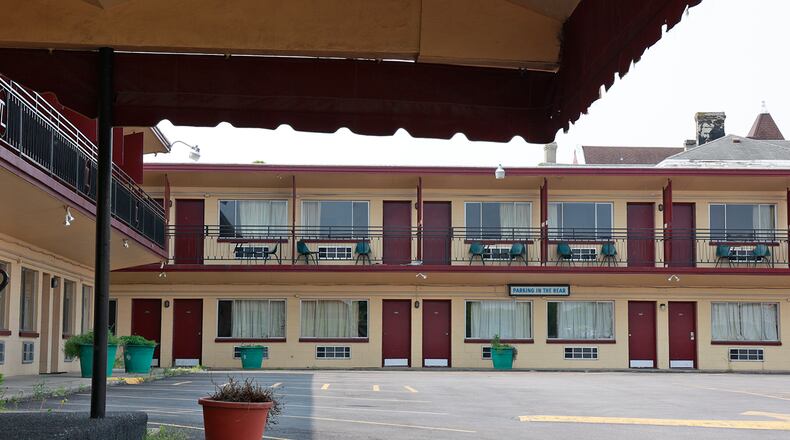Springfield Development Director Shannon Meadows outlined the plan for Springfield City Commissioners at their meeting Tuesday, indicating how federal funding will be invested.
“The action plan lays out how the community will invest entitlement dollars in low and moderate income areas and for low and moderate income individuals throughout the community,” Meadows said. “The theme this year is infrastructure and housing. We will be proposing to invest in public facilities and public infrastructure.”
The plan prioritizes preservation of affordable housing stock, increasing the availability of affordable housing, reducing discriminatory barriers and increasing the supply of supportive housing for those with special needs, as well as transitioning the homeless population into housing.
The plan includes reinvestment in deteriorating neighborhoods, establishing additional permanent emergency housing and expanding home ownership opportunities.
Meadows said she anticipates the addition of more than 200 new housing units as a result of the plan, including multi-family and duplex options as well as moderate income housing options. The city will assist nonprofit and for-profit developers with the rehabilitation or new construction of rental units for low-income residents.
The commission agenda included multiple specific projects included in the plan, with commissioners voting to approve all.
Springfield’s Deputy Director of Community Development Steve Thompson also detailed plans to work with RLH Partners Inc. for development of land bank-acquired property at 541 Fair St. that will be part of the development plan.
“The intent here is to develop Mulberry Springs, a multi-family permanent supportive housing complex. At this point the developer is looking at constructing a 30-unit, three story building.” Thompson said. “We’ve worked with neighbors along Fair Street to make sure the housing works and fits in with the neighborhood.”
The Mulberry Springs complex is part of the continuing effort to address homelessness in the community. Meadows indicated it will be similar to the concept of Mulberry Terrace, which is operated by Sheltered Inc., providing supportive services and permanent housing.
Sheltered Inc. Executive Director Elaina Bradley said during a Homelessness Task Force meeting that her organization is doing the best it can to help in the Mulberry Springs project, which was delayed for some time to await state funding.
Tina Koumoutsos, housing coordinator at the Clark County Combined Health District, said during the Homelessness Task Force meeting that projects such as these take time, particularly when a building must close to allow construction to begin.
The plan also calls for the Springfield/Clark County Housing Collaborative and Homelessness Task Force to oversee a continuum of care concept that pursues homelessness prevention and enables homeless clients to access emergency shelter and transitional/permanent housing assistance.
Thompson said during the commission meeting the city will work with RLH Partners on development of two other properties on Southern Avenue to be developed as duplex housing.
“All of this is intended to create more affordable housing in that area,” Thompson said.
In order to prevent homelessness, the plan notes that it is especially important to protect vulnerable residents, particularly renters, by holding properties to a basic level of habitability. It calls for ensuring code enforcement while also offering tools that help landlords and homeowners bring properties to code.
Mike Calabrese, OIC of Clark County executive director, said during the task force meeting that the nonprofit received $2 million in funds to address homelessness, but has been “burning through it” quicker than expected.
“The first round of money was supposed to go through November ‘25; we’re projected to have it totally exhausted somewhere around February ‘24,” Calabrese said.
Calabrese said OIC has received an additional $2.5 million from the state, but the nonprofit is paying large sums to house people in hotels and help with rent expenses with landlords increasing rates and evicting people who then ask for more rental assistance.
“They learned the game quicker than we can read the rules,” Calabrese said.
Meadows also said at the commission meeting that the plan includes targeted infrastructure expenditures as part of the Engaged Neighborhood effort, which will designate federal funding with an eye toward enhancing community amenities as well.
“We have already authorized over $1.1 million of park investment,” Meadows said. “That will include investment of $9000,000 this year alone in Davey Moore Park. We’re also looking to bring forth an additional $500,000 for park investment, including small-scale community centers and open space enhancements.”
